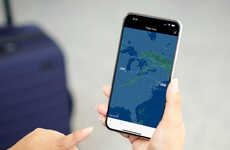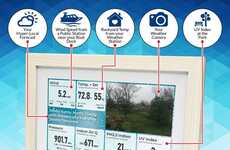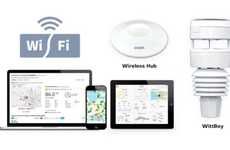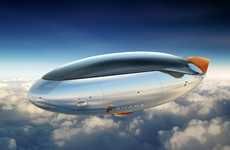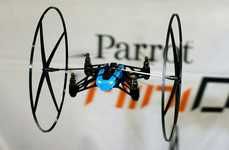
Southwest Airlines Installs Climate Sensors on Their Planes
In keeping up with today's technology-driven world, Southwest Airlines has embedded weather-detecting sensors on a fleet of Boeing 737s to create a mobile weather forecasting network located above the clouds.
This latest technology could possibly re-invent the traditional methods of gathering weather data. Contributors of the newest weather forecasting technology are Aeronautical Radio Incorporated (ARINC), the National Oceanic and Atmospheric Administration (NOAA) and SpectraSensors.
The network uses a system called the Water Vapor Sensing Systems (WVSS-II) that is programmed to quantify the level of humidity, temperature and any incoming thunderstorms as the planes take off and land. The intelligent sensing system can even detect other weather conditions like fog formation and cloud ceilings.
According to the manager of the program Jeanine Hendricks, "WVSS-II observations add a critical new piece of weather data to the forecasting puzzle."
This latest technology could possibly re-invent the traditional methods of gathering weather data. Contributors of the newest weather forecasting technology are Aeronautical Radio Incorporated (ARINC), the National Oceanic and Atmospheric Administration (NOAA) and SpectraSensors.
The network uses a system called the Water Vapor Sensing Systems (WVSS-II) that is programmed to quantify the level of humidity, temperature and any incoming thunderstorms as the planes take off and land. The intelligent sensing system can even detect other weather conditions like fog formation and cloud ceilings.
According to the manager of the program Jeanine Hendricks, "WVSS-II observations add a critical new piece of weather data to the forecasting puzzle."
Trend Themes
1. Climate-sensing Aircrafts - Using aircrafts as weather sensors can revolutionize traditional weather data gathering methods and improve forecasting accuracy.
2. Mobile Weather Forecasting Networks - The use of aircrafts as mobile weather sensors can potentially create weather forecasting networks that are more accurate and efficient than current methods.
3. Intelligent Weather Sensing Systems - The development of intelligent weather sensing systems for aircrafts can lead to improved weather data gathering and more accurate weather forecasting.
Industry Implications
1. Aviation - The aviation industry can benefit from the development of new technology like weather sensing systems, which can improve flight safety and efficiency.
2. Weather Forecasting - The weather forecasting industry can potentially benefit from the use of mobile weather sensing networks that can provide more accurate and timely weather data.
3. Technology - The development of innovative weather-sensing technology like the Water Vapor Sensing Systems has the potential to disrupt traditional weather forecasting and monitoring methods.
2.1
Score
Popularity
Activity
Freshness


